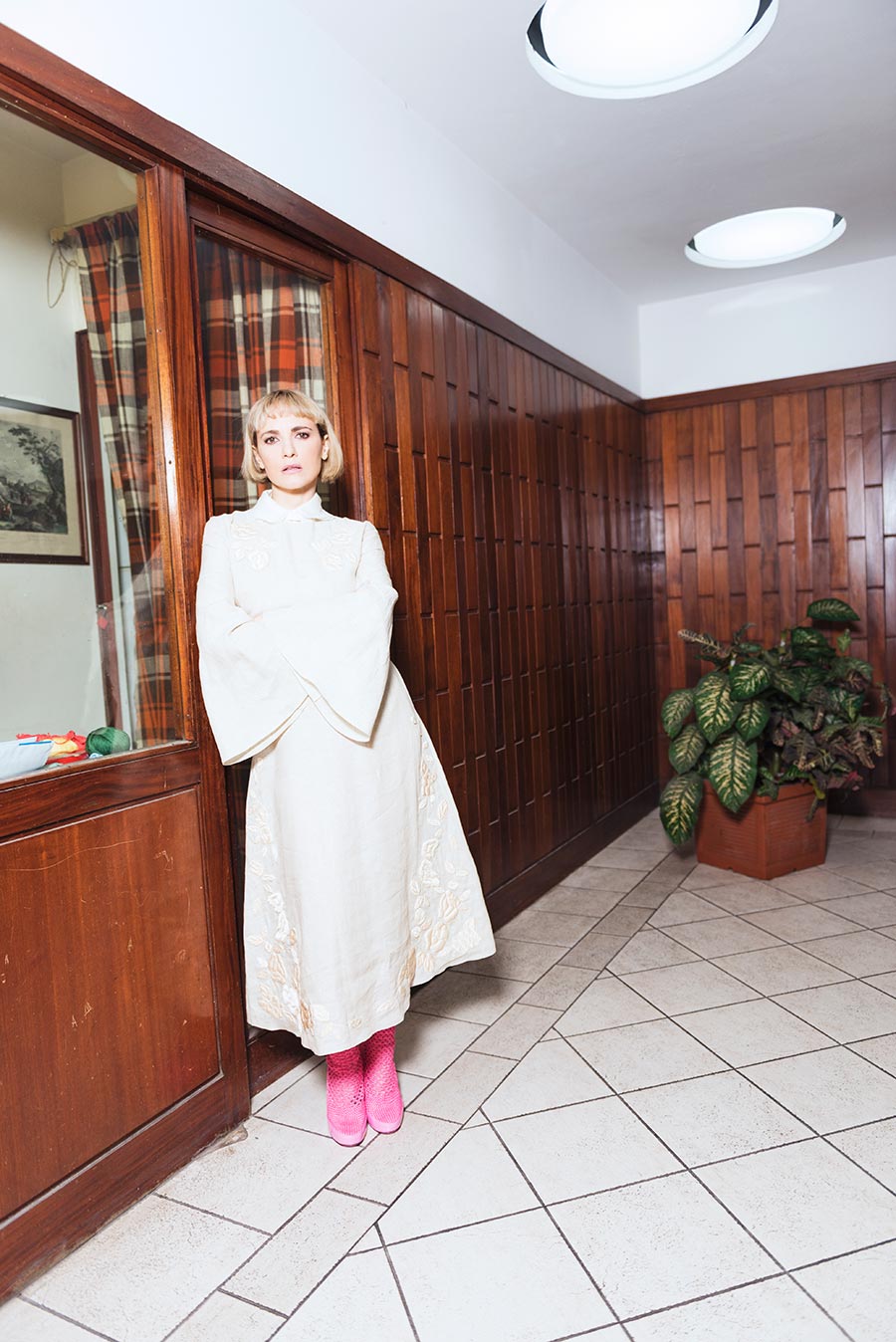

Actress Camilla Filippi has been present in our memory for almost 20 years, but she already started as a young girl, with commercial spots (as the one for Barilla, when she was just 12 years old, in 1993, where she appears, obviously around a laden table, together with an American guest, Kevin Sorbo, who later became famous as the Hercules on small screens, ed). How did the desire to devote yourself to the “seventh art” come about?
At school. When the schools still worked (laughs). I attended an experimental school, three days per week, in the afternoon, there were activities related to theater, visual education, computer technology. The passion was born there, and as a result I told my mother that I wanted to become an actress: a choice she supported, even though I was not part of a family linked in any way to the show business.
An admirable choice… Shouldn’t that be, after all, the role of a parent? Supporting children no matter how remote those choices may seem to us?
I was also very young and I am convinced that when you are 20, if you have a dream, after high school, it does not cost too much to try making it come true, to try to see how it goes. Even if it goes wrong, you have a life ahead to get back on the tracks…
The quality of your career path is in your eclecticism: you acted in films designed for TV, TV series, cinema’s movies, in comic and dramatic roles: what attracts you to a character? How do you choose the roles that belong to you?
Let’s dispel a myth: there are few actors who choose which roles to play. Of course, there are things that I don’t do, roles that I know won’t belong to me and so I don’t even go to auditions. But otherwise, we always try to give complexity and nuances to the character, regardless of the type of production. Being an actor means putting yourself in someone else’s shoes, experiencing tragedies or the most banal difficulties, eviscerating them.
Was there a character where you underestimated the psychological impact of its role or where you can say, after all, that you weren’t ready for?
I certainly underestimated the emotional impact of Stella, the protagonist of “La Stanza” (a thriller with horror traits that begins with the protagonist in a wedding dress, convinced to take her own life and stopped by a providential ringing at the door, ed). Psychologically it was very heavy. And she made me even more aware than before, on the fact that going into analysis is crucial, and should become natural for everyone, like putting on underwear before leaving the house.
After the Weinstein scandal, which broke out in 2015, a lot has changed, at least in appearance, in the world of Hollywood cinema. As an actress and woman with a successful career, what would you recommend to a young girl who would like to pursue your profession?
I would advise her to study, but also to live, because we tell stories about human beings, so the more personal experience you have, the greater your cultural and emotional baggage is, and the more we enrich our characters. And, another equally important thing I’d say to her, is to never be afraid to express her opinion.
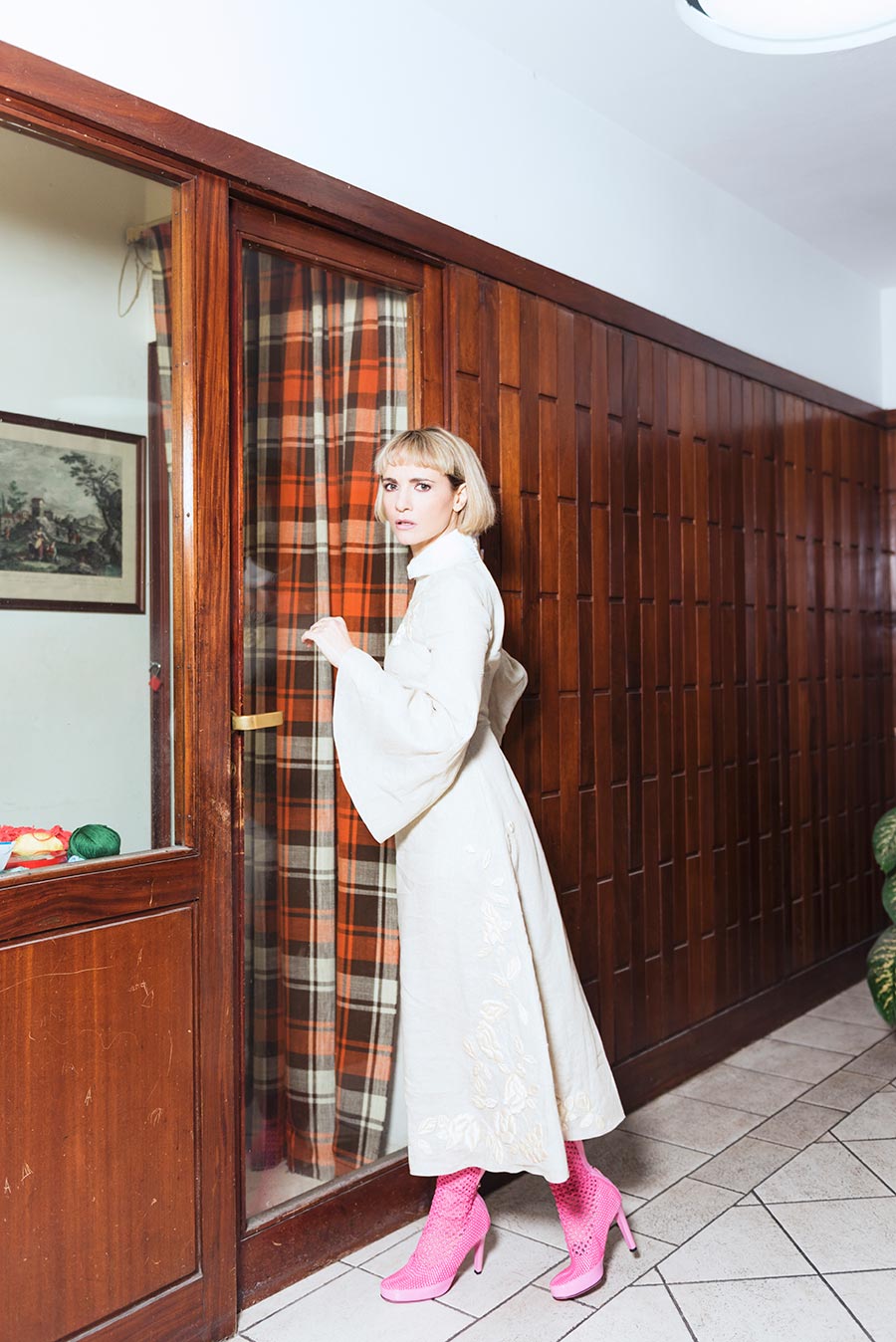
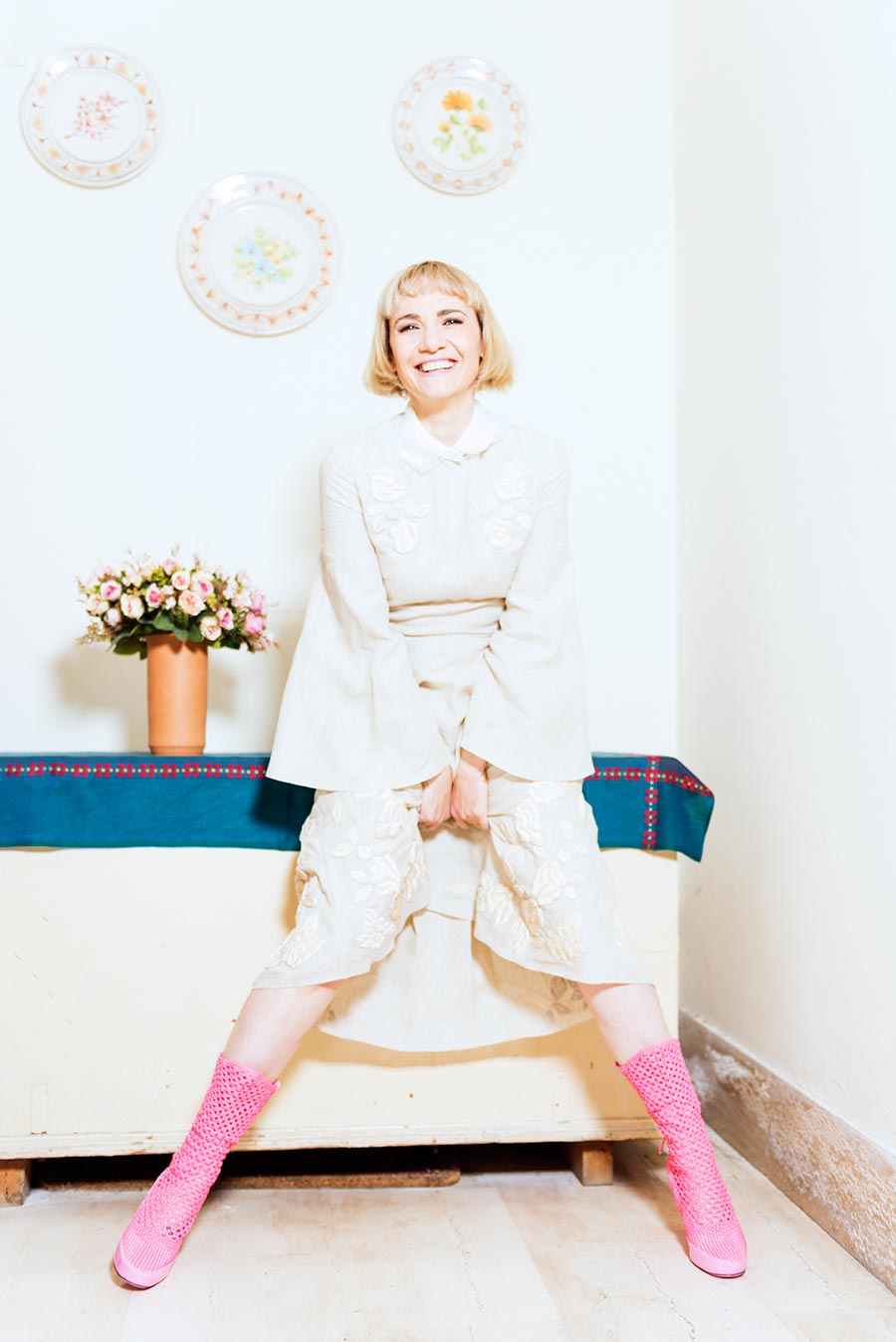
And to a younger yourself, with today’s experience, would you recommend anything?
I would tell her that it is okay: I have been always very consistent in my choices, I have been strong, thanks to my family formation: I was educated in dignity. Today a lot of communication and promotion of one’s work also passes through social media.
What is your relationship with them?
I only use Instagram, I left everything else. If it weren’t anachronistic, I wouldn’t use that either. But it has a ‘political’ value when there is a following. I believe that unfortunately the great fault of social media is having set free a certain neglect of ignorance. We are no longer ashamed of it. A thing that scares me but which unfortunately we have to live with. As a young girl I often felt like a goat, I tended to shut up if I didn’t know what we were talking about, then I went to inform myself, studying, to fill what I saw as gaps. A task that nowadays should belong to the school. It should, at least…
Recent Golden Globes nominations, thanks to the pandemic, given up in the face of the power of products made by Amazon and Netflix, to which the Hollywood Academy waged a ruthless war in recent years. Do you find that there are qualitative differences between productions created for cinema and those made for and often by the giants of streaming distribution?
Right now I don’t think there is a qualitative or narrative difference. The approach I have, as an actress, is the same, I put the same quality into it. Of course, as a spectator the experience is different, even if after a year of pandemic, thanks to the arrival of high quality serial products, I realized that sitting on the couch and spending an hour and a half in front of the screen is complex. I miss a lot going to the cinema as a spectator, I don’t even remember the last film I saw in the hall anymore…
And at home instead?
“Padre Nostro”, with Pierfrancesco Favino. I also started to watch the second season of “Big Little Lies”, I find it a masterpiece, because it is a project realized only by women. It would be wonderful to do something similar in Italy, but on one hand there is a certain snobbery, on the other we are far behind: the woman in Italian products, film or television, is always someone’s mother, wife, sister.
Is Italian cinema still very macho?
I’ll tell you something: in “La Stanza” movie, I am very traumatized by events, without make-up tricks, messy hair. On the narrative side, it would have been illogical to play that role fully dressed and made up, after all. Two different men I know, watching the film, then told me: «Damn! How ugly they made you». They would never even thought that of a man. They would compliment him on how he got into the part. And the saddest thing is that it came out from two extremely intelligent people. Just to tell you which level we are in.
There’s not just cinema in your life. You also realized exhibitions at Palazzo Collicola (#psychedelicbreakfast, in 2015), you wrote a book (“La Sorella Sbagliata”, Harper Collins, in 2020, where she tackles disability starting from a personal and family story, ed). Willingness to catharsis or to express yourself through other arts?
I always thought that having chosen a specific path since I was a young girl did not mean foreclosing on the others. I am constantly looking for new ways to come up with my ideas, but I was quite afraid of “not being enough”. In that sense, my husband, who supported me a lot, was crucial, repeating to me the thing that my mother also often said to me: «at most they will say no to you». So now I’m writing the second book.
Before going to the set for the first take, or on the occasion of an important event, do you have any rituals?
No, I’m not superstitious at all. In order to respect the others, however, I avoid wearing purple, a color that is still very ostracized in cinema. There are some directors who send you back to the dressing room to change yourself if they see you arriving on set with something of that color.
Speaking about clothes, how important are they in defining the character, and how important are they in your private life?
For my work they are fundamental. When Massimo Parrini, the costume designer of “La Stanza”, pulled out the wedding dress that you see in the first scene, I thought he already defined the character. My role is related to water, so we worked a lot on transparencies and cold colors.
The wardrobe helps to outline the role in a fundamental way. In private life, I think fashion is another way of expressing one’s personality: some maisons create art, rather than clothes. Assuming that this past year hasn’t made us better, what did it teach you?
It taught me that I had too many things and that my environmental impact had to be reduced. I have no more detergents: I make soap at home, I buy vinegar to clean the windows and I plan the weekly shopping on Mondays, to avoid waste. These are small attentions that take longer to say than to do. We could spend less time on to our smartphones on social media, and dedicate ourselves to something else: to make 3 dispensers of 250 ml of detergent, you need just a bar of Marseille soap and 45 minutes of time, if you are really a beginner. And of course I didn’t buy anything during the sales period. If this pandemic frightened us, just think about 2050.
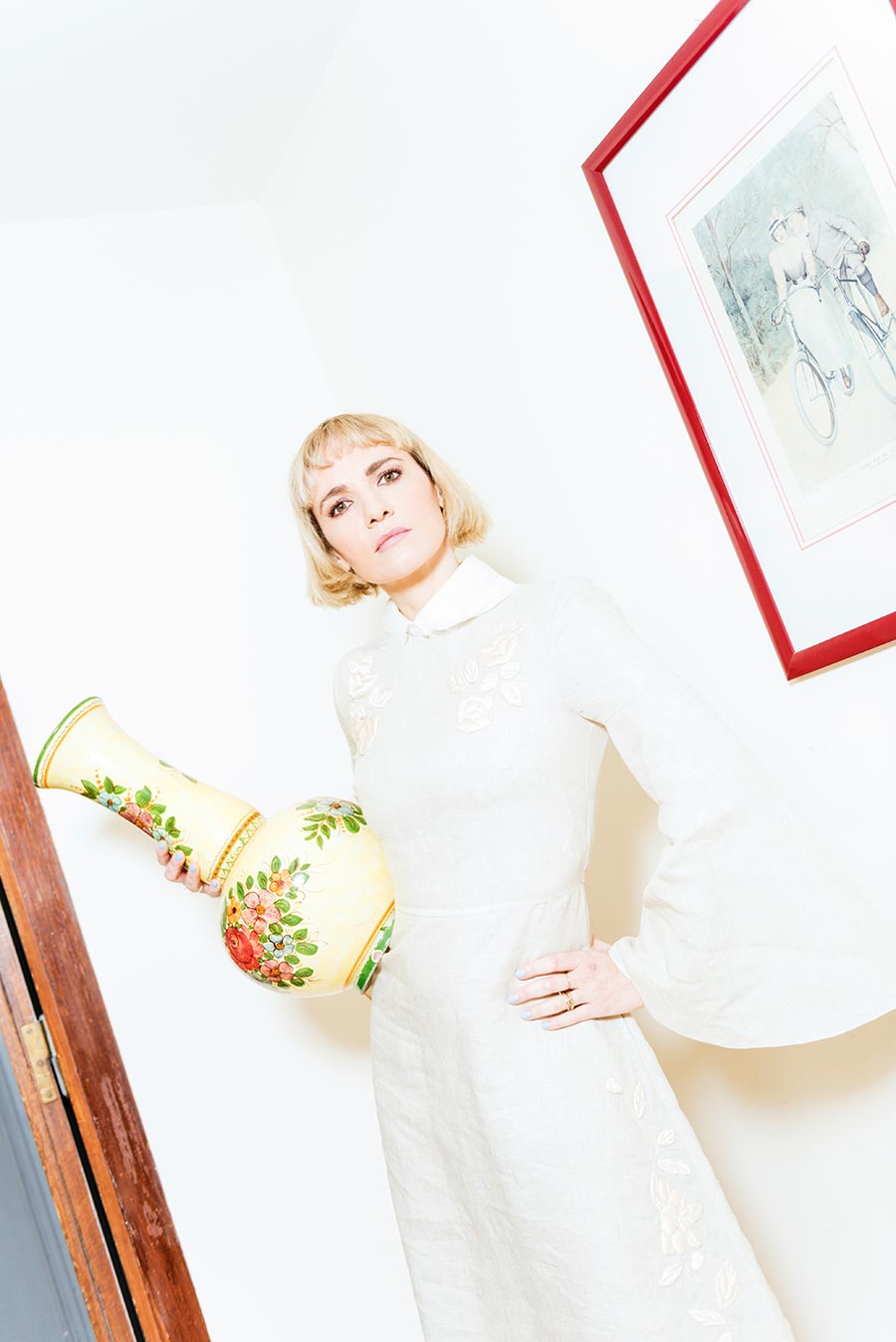
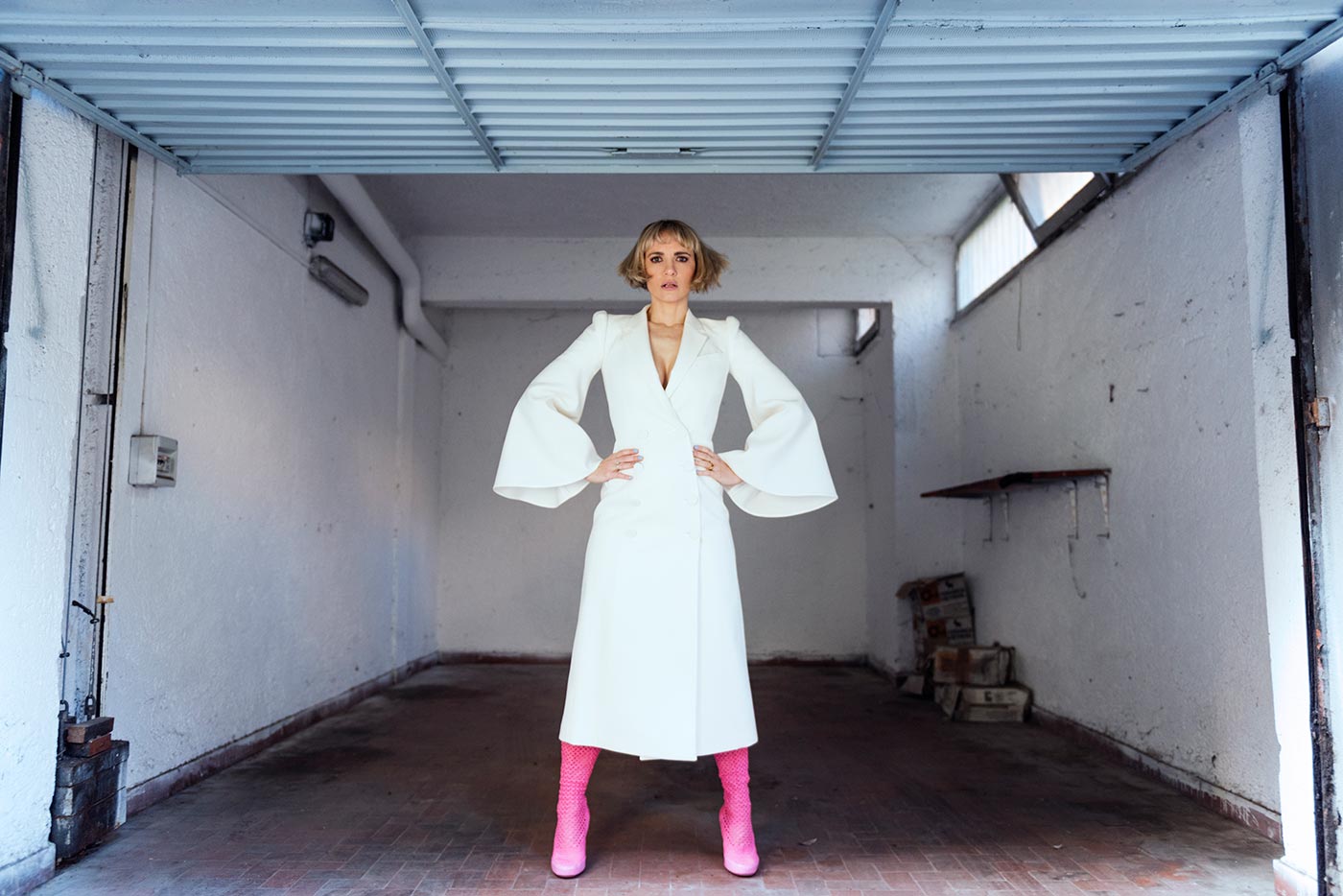
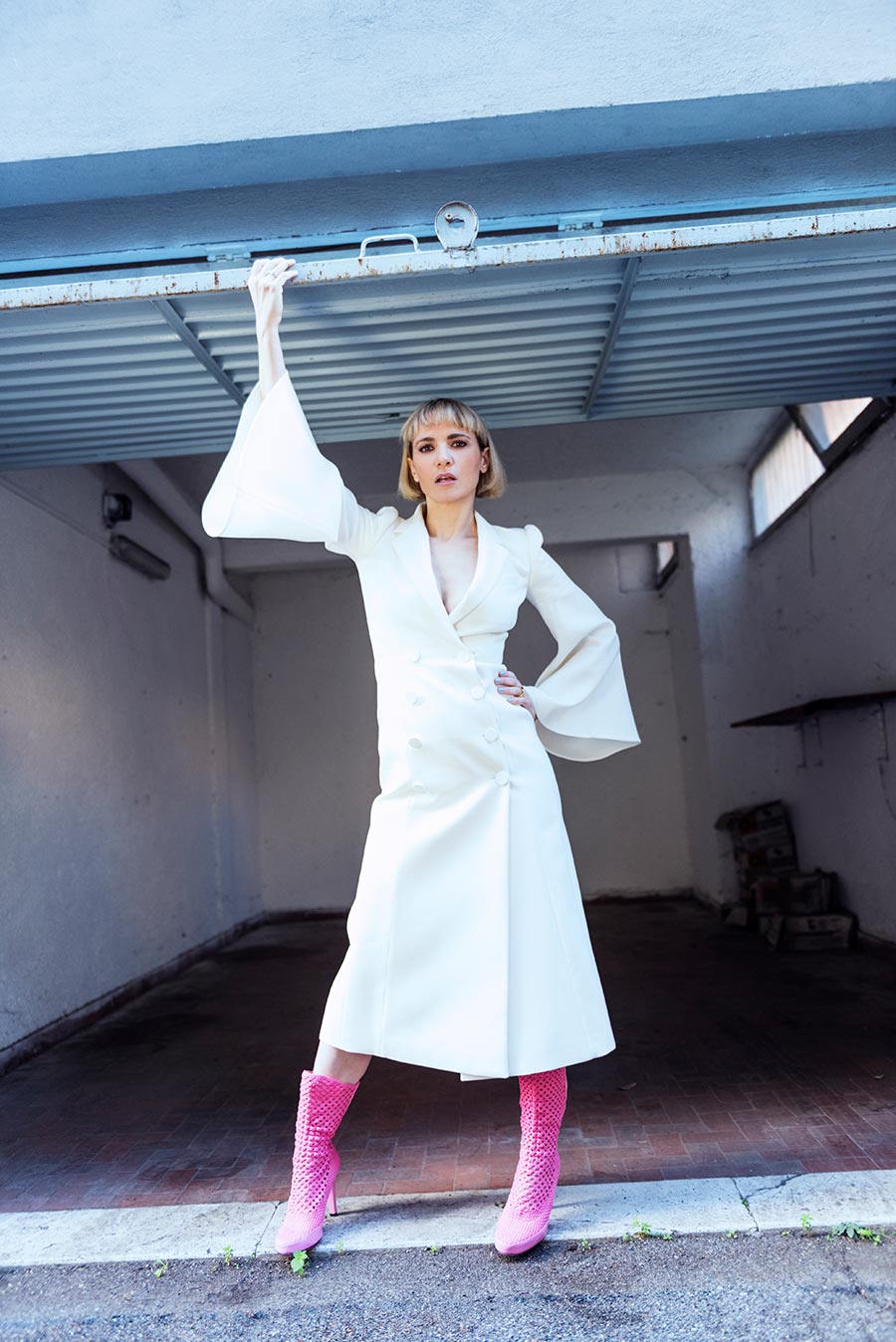
What will you do as soon as you can get out?
Go back to the restaurant. I like to go and try the starred restaurants around Italy, I went to Joia in Milan, the first starry vegetarian restaurant in Europe, and it was a 5 stars experience. On the plate it looked like it was dear meet and instead it was watermelon.
Are you passionate about cooking?
I find that it represents the sense of family, as a community, which you want to take care of with food. In fact, my kitchen is bigger than my living room.
If you think about it, even during a dinner, you spend more time in the first room than in the second.
I taught my children to cook, I want them to be independent. The eldest has a talented hand, but he lacks in patience: if a recipe is tasty the first time, the second he goes off the cuff without consulting the doses. However, some of his recipes entered the fixed menu at home, such as chicken slices breaded with cornflakes.
The Italian film tradition is full of films that take place around a table: which is his favorite?
“La Grande Abbuffata”, no doubt.
Your husband is a director, so you will often confront each other on the matter. Isn’t it a bit difficult to take “the job” also at home, in front of the set table?
I would not have been able to be with a person who does not work in my environment, because I would not have felt fully understood, we team up. I assure you, however, that with two boys, two cats and a dog, as soon as you enter the door, there is no more time to think about much else.
Starring: Camilla Filippi (@camillafilippiofficial)
//
Photography: Roberta Krasnig (@robertakrasnig)
Styling: The Other Agency
Photography Assistant: Chiara Filippi (@filippi.ch)
Interview by Giuliana Matarrese (@giuliana_matarrese)
All clothes by FENDI